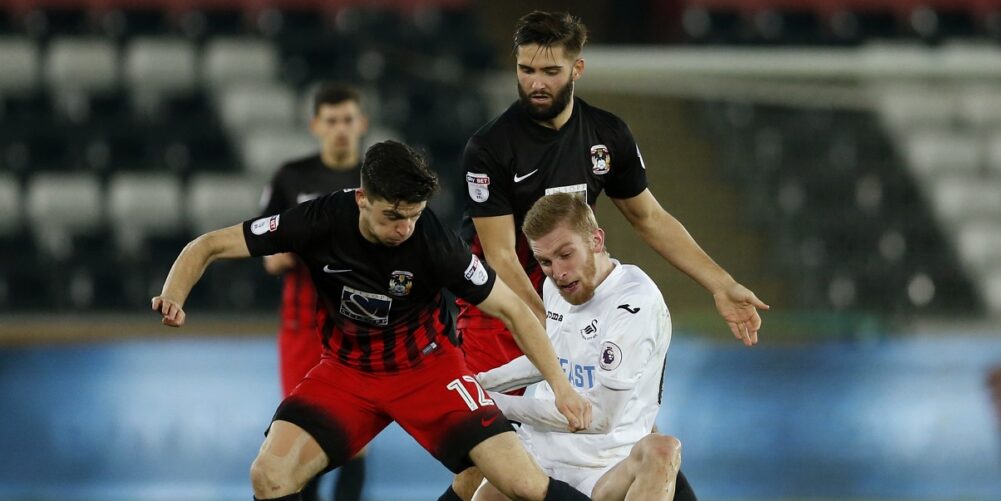The recently rebranded EFL Trophy has long been a competition famous for giving lower league clubs the opportunity to gain silverware each season. The knockout competition, which only teams from Football League’s One and Two were able to participate in, meant that fans of these clubs from the lower divisions had the chance of a trip to Wembley at the end of the season to watch their beloved team battle it out in the final, ultimately striving to lift the trophy. You can check out the latest EFL cup previews over at Footy Accas, by just clicking the link.
Due to their being no teams from the top two tiers in English football allowed in the competition, even the smallest of clubs with the most stringent budgets in League Two still stood a reasonable chance of making it to the Wembley final. Because of this, the Johnstone’s Paint Trophy, which before being named that was widely recognised as the LDV Vans Trophy, was such a well-respected and highly sought after competition amongst teams in the third and fourth tiers.
In the past, we’ve seen the likes of Chesterfield, Carlisle United and Crewe Alexandre all win the competition; all sides who would see chances of playing at Wembley without reaching a play-off final incredibly unlikely if it wasn’t in the EFL Trophy. Attendances at these Wembley finals have always been over the 40,000 mark, which shows just how seriously the competition was taken by fans of the clubs participating in it.
Last season saw a rebrand of the EFL Trophy, the name was changed from the Johnstone’s Paint Trophy to the CheckaTrade Trophy due to sponsorship reasons, and with it came a complete reformat. The EFL Trophy went from being a straight forward knockout competition to having 16 regionalised groups; eight groups for teams from the North of England, and eight groups for teams from the South. This wasn’t the only change made however, as the biggest change the competition witnessed was the introduction of twelve Premier League and four Championship u21 sides.
Development teams from Brighton & Hove Albion, Chelsea, Everton, Fulham, Leicester City, Manchester City, Middlesbrough, Newcastle United, Reading, Southampton, Stoke City, Sunderland, Swansea City, Tottenham Hotspur, West Bromwich Albion, West Ham United all now feature in the CheckaTrade Trophy alongside the 48 teams from League One & Two.
The two teams that finish both top and second in each group then go through to the knockout stages, where it then goes down to who fairs better on the given night. The fact that groups have now been introduced as part of the formatting of this competition means that teams from the Football League have to play a lot more games than they used to. This means that alongside the gruelling 46 game-per-season schedule each team from League One & Two has to already endure, they now have to play a minimum of three games in the CheckaTrade Trophy before they even stand a chance of making it through to the knockout stages, where as many as four additional fixtures can be played out before reaching the illustrious final at the end of May.
Because of these additional matches, many teams from the Football League decide to field weakened teams in order to preserve their strongest line ups for more important domestic fixtures. This, in turn leads to a significant drop in the quality of football on show, which then has a detrimental effect on attendances for these games around the whole of the country. For example, just this season when Grimsby hosted Sunderland u21’s at Blundell Park only 248 fans showed up, of which only 7 of those made up the Black Cats end. Many fans have now started boycotting matches in the CheckaTrade Trophy because of the inclusion of development sides from the Premier League and Championship, stating it’s made the competition a Micky Mouse esc joke cup, that’s it’s purely experimental and for the benefit of the development teams and nothing else. This, as you would imagine has further deteriorated the profile of the competition, to the point where it looks like it will never be salvaged.
The addition of u21 teams from the top flight and Championship means that the EFL Trophy has now lost it’s humble lower league feel, it’s unique selling point and identity within the English game, if you will. Instead, all it signifies now is a competition that caters for the bigger teams, focussing solely on the benefits that they can get out of it, completely disregarding the established mainstays and what they could potentially achieve. Don’t get me wrong, player development is paramount for the future of the game, but doing so at the expense of other teams from the lower league’s will undoubtedly do more harm than good in the long run.
















